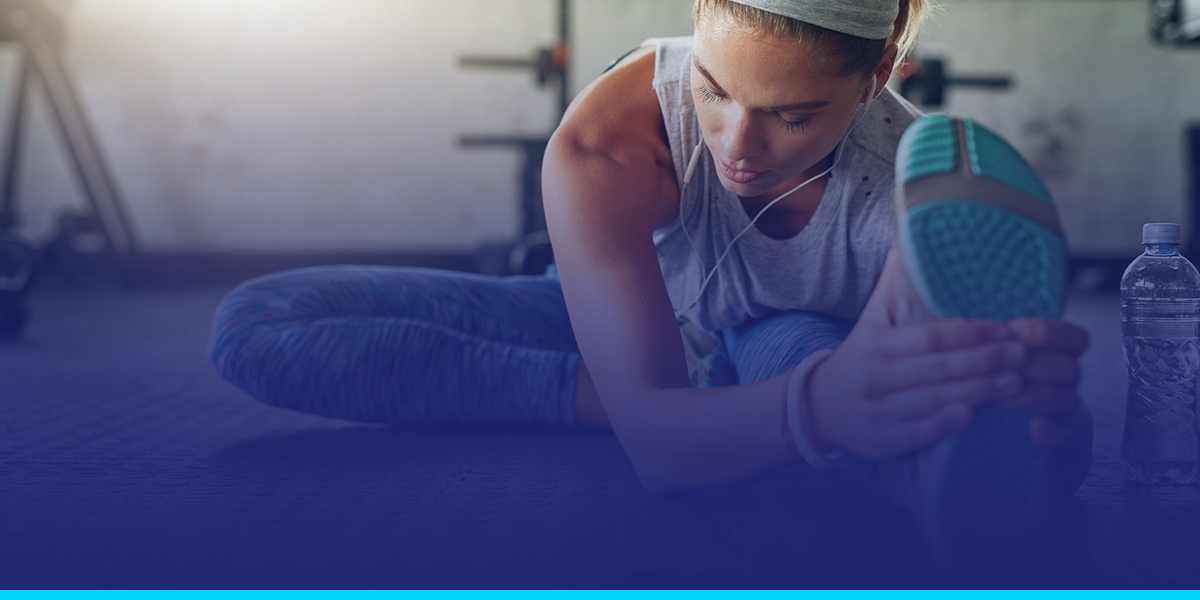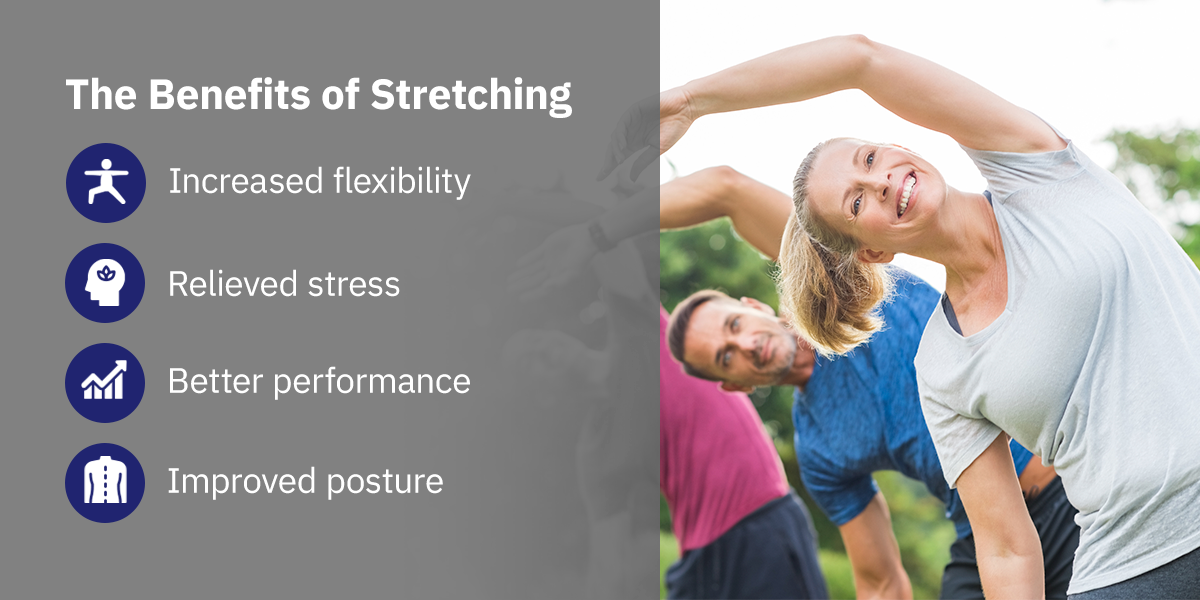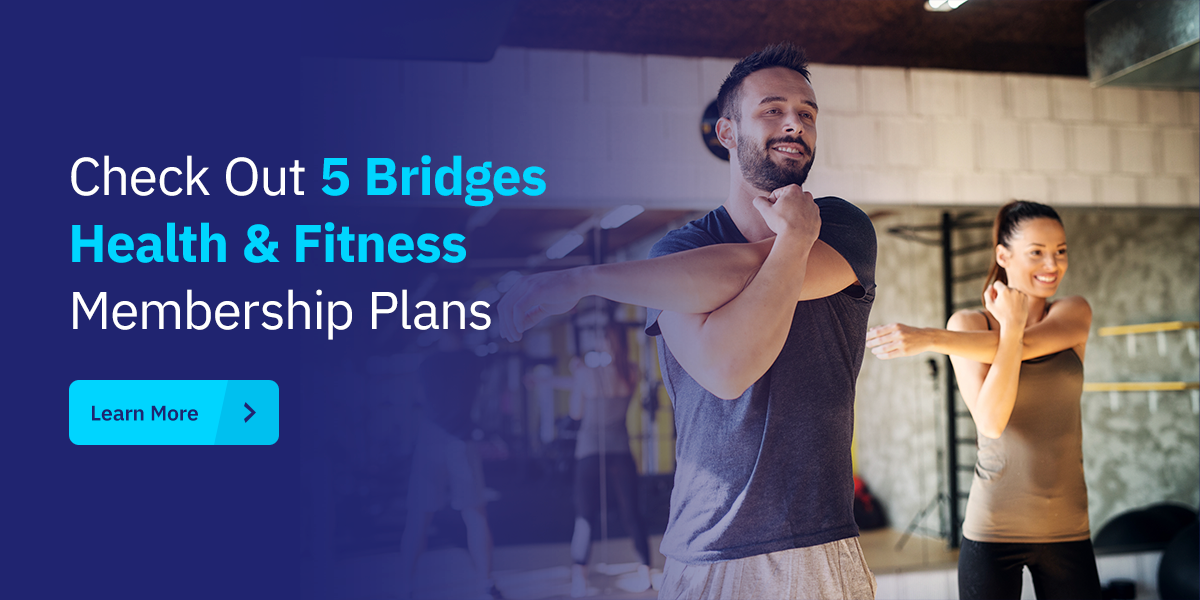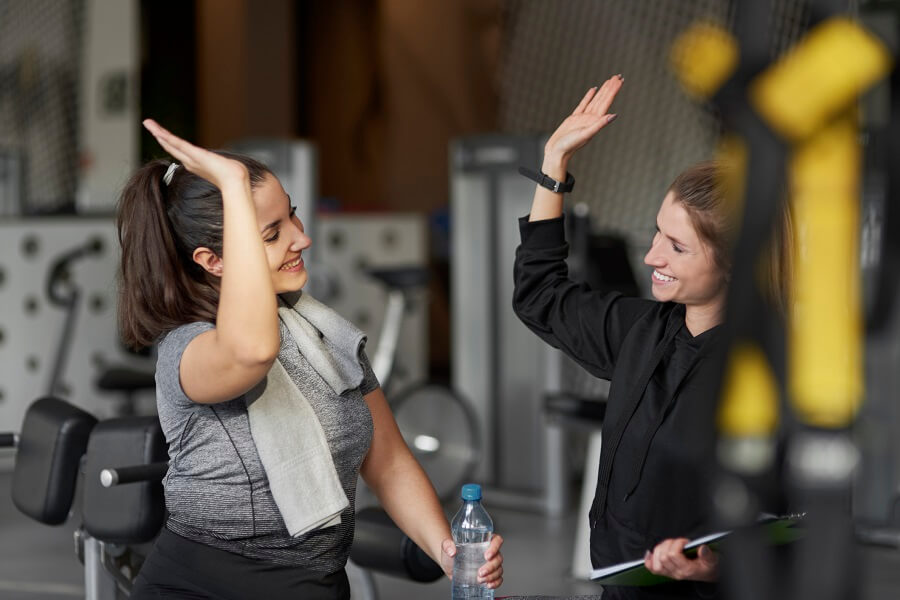Why Does Stretching Feel Good?
Why Does Stretching Feel Good?
Posted on: November 16, 2023 in Stretching
Stretching is a wonderful way to start your day, begin an exercise or cool down after a workout. It improves your joints’ flexibility and range of motion and feels good. Stretching when you’re tired can help rejuvenate and wake you up, which is why you might instinctively do it before or after leaving your bed. Stretching can also help you prepare your muscles for uncommon use before a workout. After a workout, stretching can help you relieve muscle tension, which alleviates soreness and helps you return the next day.
Stretching reduces your risk of injury, promotes calmness and increases circulation. There are numerous reasons stretching feels good. When your body feels stiff, stretching will help loosen it up.
Why Do We Stretch?
You may wonder how stretching is beneficial, and science has the answer. Stretching helps keep your muscles strong, flexible and healthy. When you stretch, you use the muscles you wouldn’t typically, which prevents them from becoming shortened and tight or weak. Weak muscles will put you at risk for strain, muscle damage and joint pain.
How Often Should You Stretch?
You should stretch daily, especially if you spend most of your day sitting. Sitting all day tightens your hamstrings, making it harder for you to extend your leg, straighten your knee and walk. You can stretch your legs and move around to prevent your hamstrings from tightening.
Stretching regularly before and after a workout will:
- Prevent injuries: Stretching before you exercise prepares your body for a workout that will use more muscles than usual, which prevents injuries. When you finish your exercise routine and stretch, your joints move through their full range of motion, increasing blood flow. This increased blood flow helps prevent muscle tightness and tension.
- Boost recovery: After your workout, stretching will boost your recovery by preventing muscle soreness and reducing the recovery time. If your muscles are sore and stiff, you won’t feel as motivated to repeat the exercise the next day. Stretching can also be a part of rehabilitation for various injuries. You can do stretches that target specific areas such as the neck, shoulders, back, legs or arms to alleviate pain in those areas.
- Maintain muscle health: Regular stretching keeps muscles from being unused, so they stay strong and healthy. When you don’t stretch, the muscles you don’t use daily will become weak, which prevents you from engaging them during more intense workouts. When you try to engage muscles but cannot, you are at risk for injury.
Why Does Stretching Feel So Good?
Stretching tends to feel good because it activates your parasympathetic nervous system, increases blood flow to your muscles, and releases endorphins that help reduce pain and enhance your mood. When you stretch, you’re not only preparing yourself mentally and physically for your workout but also awakening your muscles and experiencing the positive sensations that come with it. This is why it feels good to stretch.
Why Does Stretching Hurt Before Feeling Good?
If you stretch a muscle that has not been stretched before or is particularly tight, it may be common to feel a bit of discomfort. This pain is a natural response by the body caused by a contracting and tightening of the muscle to resist the pull. However, once your push through these startled neurons, stretching feels good. While discomfort is normal, be sure to listen to your body if severe pain is present. This is a signal that you should not go any further, and maybe gone too far as is.
Incorporating stretches into your routine can be a great way to center yourself, feel good, and enjoy the many benefits it brings.
Stretching also provides the following benefits:
Improves Circulation
Your heart rate increases when you perform any physical activity. An elevated heart rate improves your circulation and provides your muscles with additional blood, nutrients and proteins, boosting overall wellness.
Activates the Parasympathetic Nervous System
The parasympathetic nervous system allows the body to relax. After exercising, it is crucial to wind down and activate the parasympathetic nervous system. Studies have found that yoga stretching can activate the parasympathetic nervous system and reduce stress hormones. This is what helps you feel good after exercising.
Releases Endorphins
Exercise continuously releases a large amount of Beta-endorphins. These endorphins make you happy and cause the runner’s high effect. The runner’s high helps you push past your normal exercise limit by reducing pain through the blocking of pain signals.
Does Stretching Release Endorphins?
Stretching releases endorphins, which are part of the body’s natural reward system. These endorphins help improve mood, reduce pain, and assist in completing essential tasks for human survival. Although stretching can release some endorphins, it does not release Beta-endorphins, which are only released during your workout. So, while stretching is a physical activity that can boost your mood and alleviate pain, it does not provide the same level of endorphin release as a workout.
Relieves Muscle Tension
Muscles contract and relax to work. Chronic contraction occurs if your muscles remain in a specific position for too long. Chronic contraction can cause stiffness, tightness and tension, which may result in pain or injuries. Stretching relieves muscle tension and alleviates pain, preventing chronic muscle contraction.
Loosens and Realigns the Muscles
During physical activity, your muscle fibers become disorganized, stressed and overly contracted. Stretching loosens tight muscles and smooths muscle fibers, so the tissue realigns within the muscle and connective tendons and heals properly. If you do not stretch and realign your muscles, they will be more susceptible to pulls, tears and a shortened range of motion.

The Benefits of Stretching
Stretching provides many benefits when it is a part of your daily routine. It protects your mobility and independence and takes only a few minutes daily. Some of the benefits of stretching include:
- Increased flexibility: A sedentary lifestyle will decrease your flexibility because you won’t be using all of your muscles. Stretching will prevent this by using those muscles. Flexibility also decreases with age, but stretching can slow this down.
- Relieved stress: Since stretching activates the parasympathetic nervous system, it relieves stress by helping your body relax.
- Better performance: Stretching helps you maintain a full range of motion in your joints, which can boost your sports or workout performance. For example, runners need to fully extend and rotate their hips to obtain maximum speed, and stretching can help you achieve this range of motion, but exercising without stretching will not.
- Improved posture: Tight muscles or muscles with tension will pull your spine into positions that stress your neck, back or core muscles. Stretching will alleviate this stress and allow you to fully extend your spine and stand up straight, which improves your posture.
Check Out 5 Bridges Health & Fitness Membership Plans
5 Bridges Health & Fitness is a small business with roots in central Pennsylvania. We have been a part of the Harrisburg community since 2010. We are committed to bringing the health & fitness lifestyle to our community. The five bridges to a healthy lifestyle are nutrition, fitness, education, recovery and community. We offer various membership plans so you can find the right one for you. Some of the amenities our members enjoy include:
- Cardio equipment
- Personal training
- Sauna access
- Resistance machines
- Hydromassages
- Health and nutrition coaching
- Group exercise
- Locker rooms
- Batting cages
- Boxing area access
- Smoothie bar access
- Mind and body studio access
- Kids club access
- Free Wi-Fi
Working with one of our personal trainers will help you achieve your fitness goals. Our team of certified trainers offers expertise to help you see the results you want and challenge, hold you accountable and motivate you. They can help you train for an event or sport, offer you company or supervision while you work out, assist in your workout if you have a health condition, injury or illness or offer you a new routine to make things more interesting.



